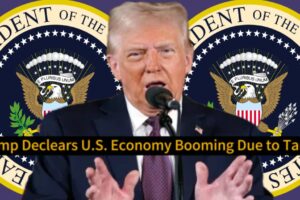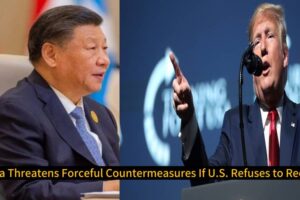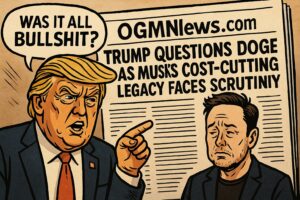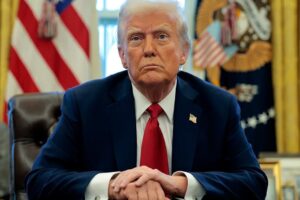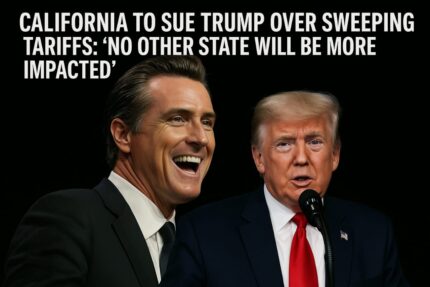California’s Governor Gavin Newsom announced Wednesday that the state will file a lawsuit challenging former President Donald Trump’s authority to impose sweeping tariffs that have triggered a global trade war. The lawsuit, which will be filed in the U.S. District Court for the Northern District of California, seeks to argue that Trump’s use of the International Emergency Economic Powers Act (IEEPA) to levy tariffs on Mexico, Canada, China, and others is unlawful.
Newsom’s office emphasized that under the Constitution, imposing such tariffs requires Congressional approval. “No other state will be more impacted by the impacts of this,” Newsom said during a press conference held in California’s Central Valley alongside Attorney General Rob Bonta. Both officials highlighted the immediate and long-term economic threats these tariffs pose to the state’s economy, the largest in the nation.
Rising Costs and Economic Fallout for California
Attorney General Bonta stressed that vendors across the state have already begun warning that the costs of Trump’s tariffs would be passed directly onto California’s consumers and businesses. “Already, vendors have warned us that they’re going to pass the costs of Trump’s tariffs onto the state of California,” Bonta said. The state, known for its vibrant agricultural and tech export sectors, could suffer billions of dollars in financial damage as a result of higher import costs and retaliatory trade measures.
Newsom added that the tariffs are causing inflated costs throughout California’s economy, impacting industries from agriculture to manufacturing. “No state is poised to lose more than the state of California,” he warned. California’s diverse economy, with its heavy reliance on international trade, makes it uniquely vulnerable to trade disruptions sparked by sweeping tariff policies.
A Legal and Political Battle Against the Trump Administration
California’s forthcoming lawsuit marks the 14th legal action the state has filed against the Trump administration in just under 14 weeks, underscoring the deepening political and legal rift between California leaders and the former president. “We’re asking the court to rein in the president,” Bonta said, signaling the state’s intent to assert limits on executive authority.
Governor Newsom and Attorney General Bonta argue that the IEEPA was not intended to give a president unilateral authority to impose broad economic measures such as sweeping tariffs without congressional consent. California’s action also underscores the broader constitutional debate over the balance of powers between the executive branch and Congress in matters of trade and foreign economic policy.
Trump’s Tariff Policies: Rapid Shifts and Rising Tensions
The lawsuit comes amid rapid changes in the Trump administration’s tariff strategy. In recent weeks, the administration imposed steep “reciprocal” tariffs on dozens of countries before pausing most of them for a 90-day period. However, a 10% tariff on most imported goods remains in effect, and tariffs on Chinese imports have surged to a total of 145%.
Trump has defended his tariff moves as essential to protecting American manufacturing and combatting the flow of illicit drugs such as fentanyl into the United States. Nevertheless, critics like Newsom argue that the real impact has been to raise costs for American consumers and damage key industries, particularly in trade-reliant states like California.
California Seeks Immediate Court Action as Global Trade Uncertainty Grows
With no resolution on the horizon, California’s lawsuit aims to immediately block the imposition of the tariffs before more economic damage is done. Newsom recently appealed to foreign governments to exempt California exports from retaliatory tariffs, but no agreements have yet been secured.
If successful, California’s legal challenge could set a powerful precedent in limiting the executive branch’s power to unilaterally impose tariffs. Meanwhile, businesses and consumers across the state are bracing for continued uncertainty as the political and economic battles over trade policy intensify.




